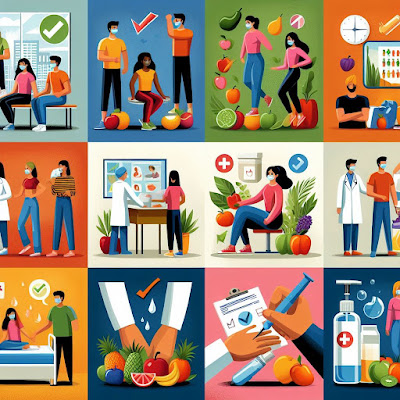Introduction: Understanding Menopause
Menopause is a natural biological process that marks the end of a woman's reproductive years. It typically occurs in midlife, with the average age of onset around 51 years old. Menopause is characterized by hormonal changes, including a decline in estrogen and progesterone production, which can lead to a range of physical and emotional symptoms. In this comprehensive guide, we delve into the science behind menopause, explore its impact on women's health, and provide practical tips for managing symptoms and optimizing well-being during this life transition.
 |
| Menopause |
The Science of Menopause: Hormonal Changes and Their Effects
During menopause, the ovaries gradually decrease their production of estrogen and progesterone, leading to irregular menstrual cycles and eventually the cessation of menstruation. This hormonal decline can cause a variety of symptoms, including hot flashes, night sweats, vaginal dryness, mood swings, and sleep disturbances. Additionally, changes in hormone levels can affect bone density, cardiovascular health, and cognitive function, highlighting the importance of understanding and managing menopausal symptoms.














